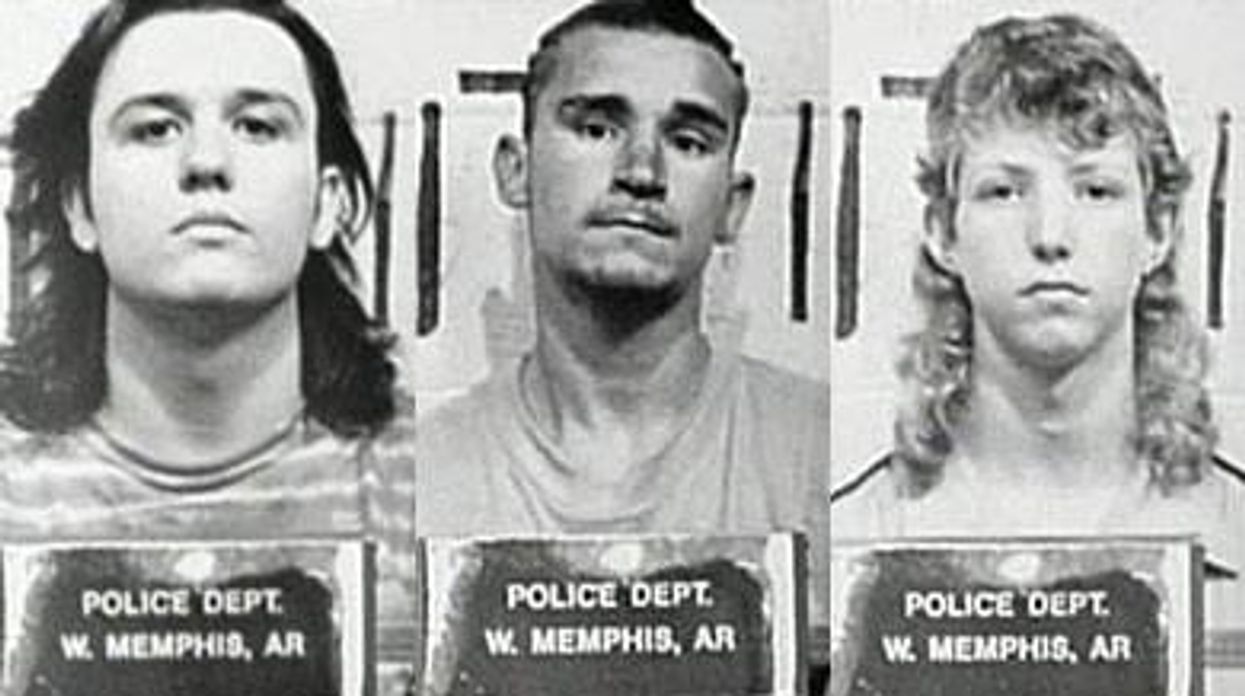
CONTACTAbout UsCAREER OPPORTUNITIESADVERTISE WITH USPRIVACY POLICYPRIVACY PREFERENCESTERMS OF USELEGAL NOTICE
© 2025 Equal Entertainment LLC.
All Rights reserved
All Rights reserved
By continuing to use our site, you agree to our Privacy Policy and Terms of Use.
We need your help
Your support makes The Advocate's original LGBTQ+ reporting possible. Become a member today to help us continue this work.
Your support makes The Advocate's original LGBTQ+ reporting possible. Become a member today to help us continue this work.
Nearly 20 years in the making, HBO's Paradise Lost 3: Purgatory is the conclusion of the award-winning trilogy that spawned a worldwide movement to free three innocent men from prison. Celebrities like Johnny Depp and everyday LGBT activists were chief among the supporters of Damien Echols, Jessie Misskelley, and Jason Baldwin -- known as The West Memphis 3 -- who were originally investigated as teens for the murder of three young boys, not because of hard evidence but because of Echol's dark outsider status and Goth clothing. A number of LGBT supporters first followed the case because the many characteristics that marked Echols as suspicious -- he didn't have many friends, he dressed differently, he was artistic and weird -- have been shared by queer and trans people for eons.
Paradise Lost 3 is both provocative and saddening. It tells the whole sordid story of one of the most notorious child murder cases in U.S. history, including each new stunning development along the way, and the conclusion just months ago when Echols, who was on death row, and Baldwin and Misskelley, who were serving life sentences without the possibility of parole, were finally freed from prison after more than 18 years.
"Almost 20 years and three films ago, HBO's Sheila Nevins sent us on this journey to document the terrible murders of three innocent boys and the subsequent circus that followed the arrests and convictions of Echols, Baldwin, and Misskelley," says director and producer Joe Berlinger. "To see our work culminate in the righting of this tragic miscarriage of justice is more than a filmmaker could ask for."
The story is horrific: On May 5, 1993, the bodies of three 8-year-old boys were found next to a muddy creek in the wooded Robin Hood Hills area of West Memphis, Ark. A month later, three teens -- Baldwin, Echols, and Misskelley -- were arrested and later convicted of raping, mutilating, and murdering them. The subsequent trials were fraught with innuendo of satanic worship, emotionally charged statements and allegations of coerced confessions, but the defendants were convicted without any physical evidence linking them to the crime.
With the support of HBO, filmmakers Joe Berlinger and Bruce Sinofsky have followed the story for almost two decades from days after the arrests to the 1994 trials when both men began to question the guilt of the West Memphis 3. Their first documentary, 1996's Emmy award-winning Paradise Lost: The Child Murders at Robin Hood Hills shocked audiences with what many believed was a rush to judgment on the part of police and jury members, nay a whole city that needed easy targets for their despair and rage. At the time, all the family members of the murdered youth believed the West Memphis 3 were guilty.
Two films later, and all that's changed. The first two films fueled a public and legal battle, raising awareness of the case and helping spark the worldwide movement dubbed Free The West Memphis 3, which was supported by celebrities such as Depp, Eddie Vedder, and Natalie Maines of the Dixie Chicks. Some of the parents and community members came to believe the West Memphis 3 are innocent, as well.
Most revealing in Purgatory, is one of the stepfathers, his wife dead, his life still ruled two decades later by that dreadful day. But now his rage has shifted from Echols to who he thinks is really the killer (the man whose DNA is found at the crime scene, a stepfather to one of the murdered kids).
Paradise Lost 3 was supposed to be a whole encompassment of the entire 20-year case so viewers wouldn't need to watch the first two films in the Paradise Lost series.
"We tried to make the film a self-sufficient viewing experience, so that you don't have to have seen the previous films to fully comprehend this complicated case," says Berlinger.
Adds co-director Bruce Sinofsky, "We re-tell the early days of the case with footage we have never used before, so fans of the first two films will be viewing past events with a fresh perspective."
Purgatory indeed offers up recent DNA and other forensic evidence (unavailable at the time of the murders), as well as allegations of juror misconduct, new interviews with the West Memphis Three (who are all now men in their 30s) and many of the subjects of the first two documentaries, including John Mark Byers and Terry Hobbs, stepfathers of two of the victims and frequent targets of the media (and each other). There's also rarely seen news footage that is no longer available to the public, but had been meticulously archived by the filmmakers, as well as previously unseen photographs taken by Berlinger and director of photography Bob Richman over the course of 18 years.
But somehow I think viewers of this film do miss something by not having followed the whole series. There was a certain sad poetry to how the series flows together and an buiding mystery that that lingers throughout this story of how the lives of six Tennessee boys were ruined in 1993.
At the end of Purgatory -- which concludes with a stunning denouement, as Echols, Baldwin, and Misskelley entered rarely used Alford pleas and were finally released from prison on August 19, 2011, agreeing to plead guilty while asserting their innocence in order to secure their freedom, and most urgently, to get Echols off death row -- there's a sense that this series deserves one final film, one final act, perhaps a Paradise Lost 4 in which the cops, the media, the world, and most importantly, the surviving parents of those three murdered little boys, finally finds out who the real killer is.
deliciousdiane
From our Sponsors
Most Popular
Bizarre Epstein files reference to Trump, Putin, and oral sex with ‘Bubba’ draws scrutiny in Congress
November 14 2025 4:08 PM
True
Jeffrey Epstein’s brother says the ‘Bubba’ mentioned in Trump oral sex email is not Bill Clinton
November 16 2025 9:15 AM
True
Watch Now: Pride Today
Latest Stories
Trump's FDA sends warning letters to companies selling chest binders
December 19 2025 2:31 PM
Bowen Yang to leave SNL after Ariana Grande and Cher episode
December 19 2025 2:10 PM
Notorious anti-LGBTQ+ New York Archbishop Dolan retires — here are his worst moments
December 19 2025 1:27 PM
Sarah McBride knew some Democrats would betray trans people, so she lobbied Republicans
December 19 2025 12:55 PM
Creating Change Returns to Washington D.C. for 38th Convening for LGBTQ Advocacy
December 19 2025 12:22 PM
House passes bill banning Medicaid from covering gender-affirming care for youth
December 19 2025 11:05 AM
Health policy expert to RFK Jr.: You can't ban trans youth care this way
December 18 2025 5:37 PM
12 lesbian thrillers and mysteries to binge & where to watch them
December 18 2025 4:36 PM
Netflix's 'Boots' season 2 plot revealed by producer amid cancelation
December 18 2025 4:33 PM
Charlie Kirk's accused killer, Tyler Robinson, on LGBTQ+ issues: It's complicated
December 18 2025 4:04 PM
Sacramento man still in coma six weeks after suspected anti-LGBTQ+ hate crime
December 18 2025 1:17 PM
RFK Jr. and Dr. Oz announce sweeping measures to ban gender-affirming care for trans youth
December 18 2025 12:19 PM
True
Texas city will remove rainbow crosswalks under orders from Trump administration
December 18 2025 11:07 AM
Six key takeaways from Trump's speech to the nation, including 'transgender for everybody'
December 17 2025 10:51 PM
Marjorie Taylor Greene’s bill criminalizing gender-affirming care for minors passes with Democrats’ support
December 17 2025 6:47 PM
True
I didn’t just run the world’s major marathons. I changed them
December 17 2025 4:31 PM
Pam Bondi wants FBI to offer bounties for ‘radical gender ideology’ groups, leaked memo shows
December 17 2025 3:17 PM
Trending stories
Recommended Stories for You

Diane Anderson-Minshall
Diane Anderson-Minshall is the CEO of Pride Media, and editorial director of The Advocate, Out, and Plus magazine. She's the winner of numerous awards from GLAAD, the NLGJA, WPA, and was named to Folio's Top Women in Media list. She and her co-pilot of 30 years, transgender journalist Jacob Anderson-Minshall penned several books including Queerly Beloved: A Love Across Genders.
Diane Anderson-Minshall is the CEO of Pride Media, and editorial director of The Advocate, Out, and Plus magazine. She's the winner of numerous awards from GLAAD, the NLGJA, WPA, and was named to Folio's Top Women in Media list. She and her co-pilot of 30 years, transgender journalist Jacob Anderson-Minshall penned several books including Queerly Beloved: A Love Across Genders.




































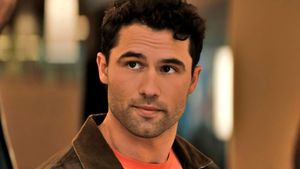















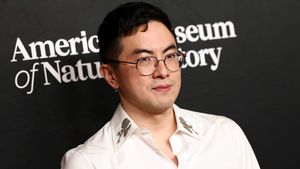
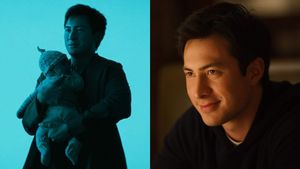




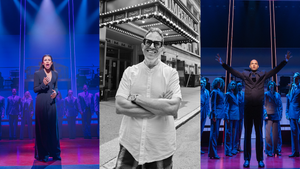



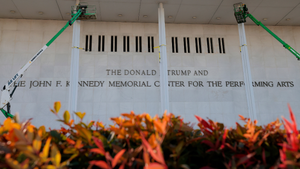

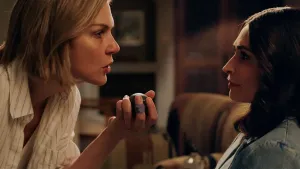
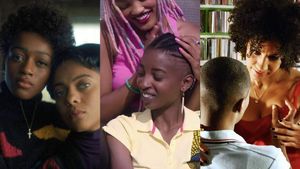

Charlie Kirk DID say stoning gay people was the 'perfect law' — and these other heinous quotes